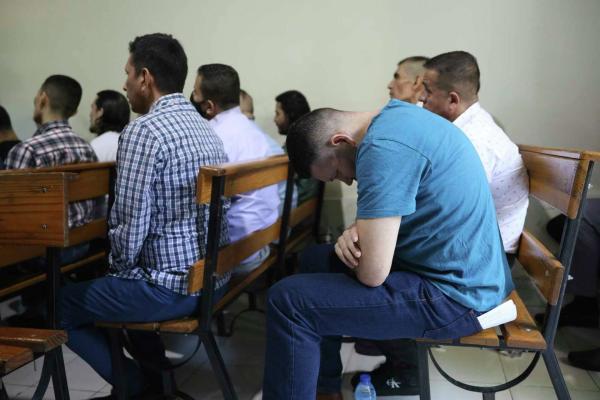
A Federal High Court, Abuja, on Thursday, dismissed a Peoples Democratic Party (PDP) suit seeking the disqualification of Governor Abdulrahman Abdulrazaq of Kwara and All Progressives Congress (APC) in the March 11 governorship election.
NAN reports that Justice Inyang Ekwo, in a judgment, held that the suit was an abuse of the court process.
According to Justice Ekwo, no iota of law supports this action.
The PDP had, in a suit marked: FHC/ABJ/CS/1324/2022, sued the Independent National Electoral Commission (INEC), Governor Abdulrazaq and APC as 1st to 3rd respondents, respectively.
The PDP had asked the court to declare that Mr Abdulrazaq’s West African Examination Council (WAEC) School Certificate attached to his affidavit in support of his particulars which bear the name “RAZAQ A. R.” did not belong to him, “whose name as shown in FORM EC 9 is ‘ABDULRAHMAN ABDULRAZAQ.’”
The party claimed that the WAEC certificate was forged and presented by the APC to INEC to aid Abdulrazaq’s educational qualification as provided for in Section 177 (d) of the 1999 constitution (as amended).
The PDP, therefore, sought an order disqualifying Abdulrazaq and APC from participating in the Kwara governorship poll, among others.
But the duo opposed the PDP’s application, urging the court to dismiss the suit for constituting an abuse of the court process.
They argued that the PDP lacked the locus standi to institute the action as neither a contestant nor a member of the party, among others.
Delivering the judgment, Justice Ekwo agreed with the 2nd and 3rd respondents (Abdulrazaq and APC) that the PDP had no locus standi (legal right) to file the matter.
According to him,.where there is no locus, the court has no jurisdiction.
He said the court found that the action was incompetent for lack of locus standi.
Ekwo held that that matter bordered on the internal affairs of the APC in which the PDP lacked locus to file the case.
On the argument about non-disclosure of the cause of action against the respondents, the judge said that there was a nexus between locus standi and a cause of action.
He, therefore, said that since the PDP had no locus standi, it also did not have any cause of action against the respondents.
Justice Ekwo also agreed with the respondents that the suit was an abuse of the court process.
“It is express in the provision of Section 29 (5) of the Electoral Act, 2022 that the right of action on the matter for which the applicant/respondent (PDP) has filed this action is given to ‘any aspirant who participated in the primaries of his political party’.
“This Court has also previously found on the first leg of the objection of the 2nd respondent/applicant that the applicant/respondent (PDP) is not an ‘aspirant’ of the 3rd respondent.
“This court has also found that the provision of Section 285 (14) (c) of the 1999 Constitution (as amended) also relied upon by the applicant/respondent (PDP) in this case does not avail.
“The summation of this is that there is no iota of law which support this action. It is on this ground that I find that this case is an abuse of process and I so hold,” he said.
According to him, where a court finds that a suit filed by a party amounts to an abuse of the process of the court, it has the duty to dismiss it to put a final stop, at least as far as that court is concerned, to the abuse of its process.
He, consequently, dismissed the suit for constituting an abuse of court process.






















